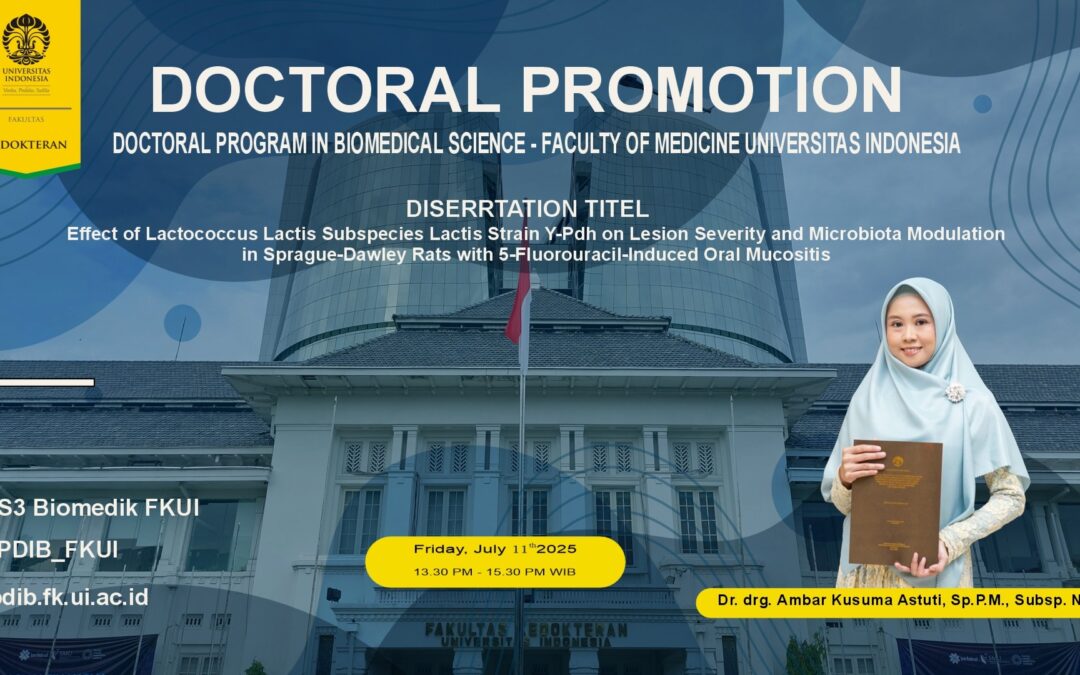Jakarta, July 11, 2025— As cases of various cancers increase, so too does the number of patients undergoing chemotherapy. One of the side effects of chemotherapy is oral mucositis, which can present as painful and bothersome mouth ulcers. As a result of mucositis, patients experience pain and difficulty eating and speaking. Furthermore, oral mucositis can lead to nutritional disorders, weight loss, and hinder the continuation of cancer therapy.
Currently, there is no standard treatment for mucositis; most treatments only address pain relief. It is now known that changes in bacterial composition, or dysbiosis, play a significant role in causing mucositis. Dysbiosis can be triggered by external factors such as smoking, diet, and medications, including chemotherapy. The severity of oral mucositis is related to chemotherapy-induced dysbiosis. One way to address dysbiosis is by administering beneficial bacteria, or probiotics.
One source of probiotics is fermented milk products. Dadih, a fermented buffalo milk product from West Sumatra, has numerous benefits, including reducing diarrhea, providing antibacterial, antioxidant, and anticancer properties. The curd contains numerous beneficial bacteria, namely Lactococcus lactis subsp. lactis strain Y-PDH. It is hoped that the use of L. lactis bacteria from the curd can improve chemotherapy-induced mucositis.
A participant in the Biomedical Sciences Doctoral program at the Faculty of Medicine, University of Indonesia, drg. Ambar Kusuma Astuti, Sp.P.M., Subsp. NonInf., conducted research to determine the effect of L. lactis subsp. lactis strain Y-PDH on the severity of oral mucositis. This study conducted a comprehensive analysis, from laboratory testing and animal studies to metagenomic analysis to observe changes in bacterial composition using next-generation sequencing (NGS).
Mice were subjected to oral mucositis by administering chemotherapy, then the mice were given low and high doses of L. lactis bacteria from the curd. On the final day, the severity of the mucositis was directly observed, and cheek tissue from the mice was removed to observe changes and measure the level of inflammation.
Furthermore, changes in bacterial composition between the animal groups were also observed. According to drg. Ambar stated, “Treatment of oral mucositis remains an unmet medical need. The use of L. lactis from dadih, a native Indonesian bacterium, is expected to become a new treatment option to reduce the severity of mucositis caused by chemotherapy side effects.”
Based on the research results, low doses of L. lactis can reduce the severity of mucositis. Mice receiving chemotherapy given low doses of L. lactis showed improved healing, accompanied by increased body weight and food intake. The improved effects of low doses of L. lactis are related to its ability to reduce inflammation and restore the balance of bacterial composition in the oral cavity.
On the other hand, high doses of L. lactis had the opposite effect and even inhibited wound healing in mice without chemotherapy. Therefore, low doses of L. lactis are recommended for use in oral mucositis. For further product development, L. lactis packaging that is easy for patients to use is needed.

